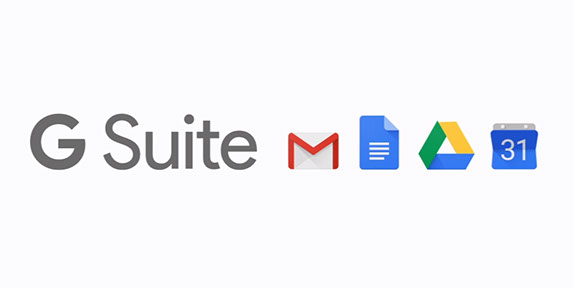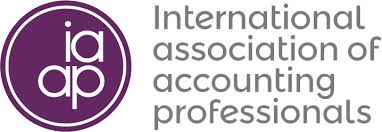










BUSINESS
WORKS WITH TECHNOLOGY!
PROFESSIONAL
CONSULTING SERVICES
BOOKKEEPING
keeping records of the financial affairs of a business
Google G Suite
Grow your Business with Google G Suite Technology that brings teams together
TRAINING
Specific goals of improving one's capability, capacity, productivity and performance.
EMAS SST Accounting Software, Payroll System
WEB DESIGN
It's time to get serious about how your business looks online. We can help!
Our Team
Our accounting team are highly qualified advisers who bring their expertise to every facet of your taxation and compliance matters.
CLOUD COMPUTING (Remote Desktop,Tonido Own Office Cloud)
on-demand access to a shared pool of configurable computing resources.
The International Association of Accounting Professionals
BECOMING A RECOGNISED ACCOUNTING PROFESSIONAL
Expert Accounts
Cloud Accounting, Cloud ERP • CRM • SFA • POS • Online Shop




Salary Expectations
How much do bookkeepers make? This answer depends on their experience. The national median salary for bookkeepers is around $36,000 annually. Bookkeepers can look forward to their salary increasing throughout their careers in line with their growing experience. Bookkeepers with 5 to 10 years of experience typically earn $48,000 a year.
Job Outlook for Bookkeepers
Projected Growth
Changes in technology that allow business owners without financial backgrounds to handle their own bookkeeping needs are expected to influence this decrease. The drop in available positions means bookkeepers may need more experience and higher qualifications to distinguish themselves from future job candidates.
Career Trajectory
What does a bookkeeper do after several years? The individual might remain working as a bookkeeper or pursue other opportunities, such as working as an accountant. Many of the roles of a bookkeeper and accountant overlap, especially for bookkeepers working with small to medium-sized businesses, which can often make the transition an easy one to make. However, accountants tend to focus more on reporting and business analysis and processes than bookkeepers.
While accountants do not need formal qualifications, most professionals who hire accountants look for candidates with a bachelor's or master's degree in accounting or a related field. With the rise of online degrees, many bookkeepers study for this qualification while working in full-time positions.
The skills bookkeepers develop also readily translate to positions such as financial supervisor, financial analyst, and financial manager.
A job as a bookkeeper is an ideal choice for people passionate about helping businesses better manage their finances. With positions available in almost every business sector, aspiring bookkeepers have the freedom to work in almost any industry. Begin your search for a bookkeeping job today.
 The career of a bookkeeper
The career of a bookkeeper
CAREER SPOTLIGHT: BOOKKEEPER
You may have heard the term, but you may wonder what is a bookkeeper?
Bookkeepers work with the financial transactions and records of business clients. These records typically include expenditure, receipts, accounts payable, accounts receivable, and profit and loss records.
Many organizations employ bookkeepers, including accounting firms, tax preparation services, and payroll organizations. However, government departments, schools, and small and medium-sized business owners from a range of industries also employ bookkeepers. Some bookkeepers dedicate themselves to working for a single client, while others work for many businesses. Find out what you need to know to learn whether working as a bookkeeper is right for you.
What Can You Expect From a Bookkeeper Job?
Responsibilities
What does a bookkeeper do? Recording and balancing financial transactions for an employer or client are among some of the responsibilities. While the specific responsibilities may vary from client to client, a typical bookkeeper job description includes the following tasks:
• Enter business expenses and income received into physical ledgers or accounting and office software
• Receive, process, and record receipt of cash, checks, and vouchers for clients
• Send cash, checks, and payment in other forms to employer or clients' financial institutions
• Prepare and distribute invoices to collect money owed to business clients
• Notify people who owe business clients money
• Receive invoices and verify delivery of listed products and services
• Match invoices to contracts and purchase orders
• Ensure correct and prompt payment processing
• Calculate payroll to make sure all business clients' salaried, hourly, and contracted employees receive prompt, accurate wages
• Reimburse employees for business expenses
• Distribute petty cash to employees
• Withhold funds for employee benefits and wage garnishments
• Process and file payroll taxes
• Order office supplies, products, and merchandise
• Record inventory levels
• Produce monthly, quarterly, and annual financial reports, including balance sheets, income statements, totals by account, outstanding payables reports, and outstanding receivables reports
• Verify the accuracy of all expenses and income figures, bank postings, and financial reports
• Reconcile any discrepancies in financial records
• Communicate with business clients or employers about their financial situations, budget needs, and budget constraints
• Make quarterly income and payroll tax deposits
• Process W-9 and 1099 tax forms
• Prepare and file annual municipal, state, and federal tax returns
 Typically, small employers and clients give their bookkeepers a significant number of responsibilities. For example, bookkeepers may process payroll for a small organization that does not maintain its own payroll department.
Typically, small employers and clients give their bookkeepers a significant number of responsibilities. For example, bookkeepers may process payroll for a small organization that does not maintain its own payroll department.
Work Environment
Bookkeepers typically work in the offices of their employers or business clients, which permits easy access to managers for questions about transactions and accounts. Bookkeepers may generally work in quiet office environments, although the pace of workflow may escalate at the end of the fiscal year and around tax time.
Some bookkeepers, however, work from their home office, a trend that is especially common for self-employed bookkeepers. These bookkeepers rely on phones and digital communication methods, such as video calls, emails, and instant messages, when they need to verify information with their clients.
Schedule
Bookkeepers typically keep regular business hours, working from 9 a.m. to 5 p.m. or similar hours from Monday to Friday. Weekend and public holiday work is limited, although bookkeepers may need to work extended hours during busy periods, such as leading up to tax season or at the end of the fiscal year.
Most bookkeepers working for large organizations typically work full-time hours. Part-time work is more common among people who work for small and medium-sized firms. Bookkeepers who work for a number of business clients, including self-employed bookkeepers, may not keep regular full-time hours, but they are likely to be busier than bookkeepers working for a single small or medium-sized business.
What Qualifications Are Required to Be a Bookkeeper?
Education
Even though bookkeepers are responsible for maintaining financial records, these professionals do not need special certifications to perform their duties. A high school diploma is typically the education level required to work as a bookkeeper, especially if the candidate has studied accounting or interned at a bookkeeper's office. However, companies are increasingly looking for bookkeepers with degrees in relevant fields, including finance, accounting, and business studies.
Alternatively, a bookkeeper can gain certification through a professional organization such as International Association of Accounting Professional ,IAAP, UK. This certification can help bookkeepers gain an advantage in the job market without seeking a higher educational degree.
On-the-job training is also important for bookkeepers. All businesses have slightly different processes that bookkeepers must understand so that financial matters can be seamlessly resolved. The best bookkeepers try to follow established business practices, but they may also suggest ways to streamline these practices to improve efficiency.
Experience
Since bookkeepers do not need formal qualifications, employers may value experience over education. This value can be reflected in the higher salaries that bookkeepers receive as they gain more experience. Experienced bookkeepers may actually save businesses money because they can complete work more efficiently than recently hired bookkeepers. Once you have established yourself in your career as a bookkeeper, you should find securing new employment opportunities easier.
Skills
Bookkeepers need a variety of skills to succeed in this financial specialty. Below are some of the skills employers and business clients consider when hiring bookkeepers:
• Software skills – Most companies now prefer digital records to physical financial ledgers, so bookkeepers should be familiar with accounting software and office programs for this purpose.
• Data entry – Bookkeepers must quickly and accurately enter financial data and other information from receipts and bills into databases, spreadsheets, and accounting software.
• Mathematical skills – While computer programs handle many calculations, bookkeepers often rely on their own mathematical skills throughout their work.
• Familiarity with double-entry bookkeeping procedure – This popular procedure helps bookkeepers work more accurately and, therefore, more efficiently.
• Strong organization skills – Bookkeepers must be organized to ensure financial documents are not misplaced, bills are paid on time, and tax deadlines are met.
• Good communication skills – Bookkeepers must use excellent verbal and written communications skills to explain financial matters to business clients and executives who do not have financial backgrounds to understand their budget needs.
• Honesty – Business clients and employers must trust their bookkeepers with their financial information and access to funds.
• Discretion – Business clients and employers need to know their bookkeepers will keep financial details confidential.
• Reliability – Business clients and employers rely on their bookkeepers to give ongoing financial support and feedback. Absences can disrupt workflow and cause financial problems within an organization.
Accounting
Specialist In Accounting System & Solutions
SST SERVICES
SST Accounting
TRAINING COURSE
SST Seminar,Accounting ,Cloud Computing etc
BOOKKEEPING
RECORD-KEEPING SERVICES



